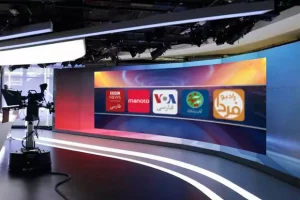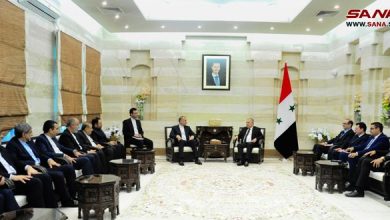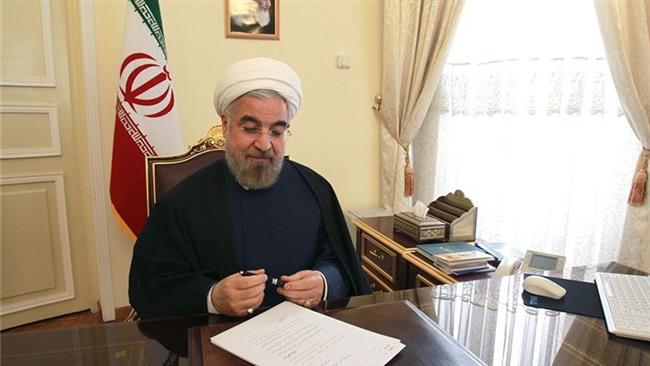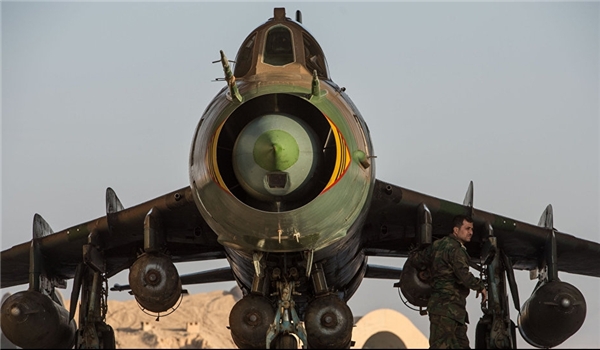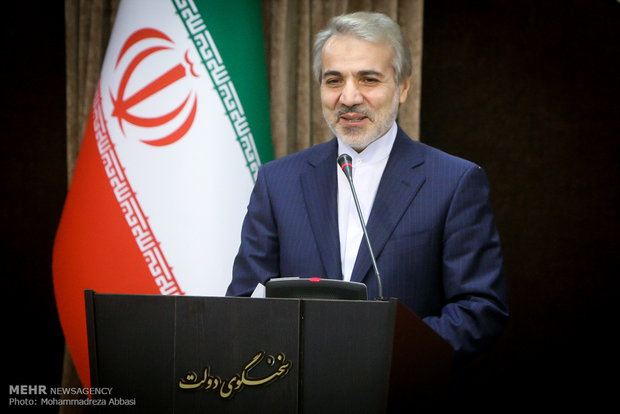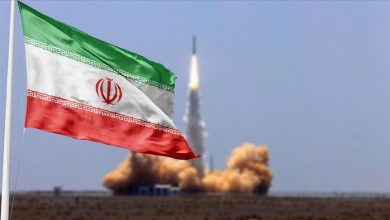One lie against Iran every two minutes!
The BBC Persian, Iran International (otherwise known as Saudi International), and other Persian news networks headquartered in Europe instigated riots throughout Iran.
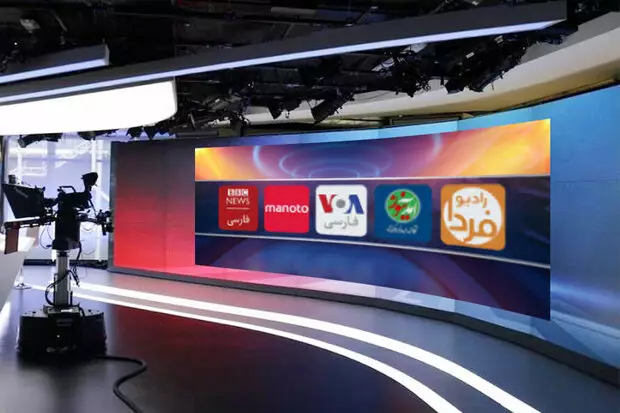
In this report, we are seeking to explore how many lies they told, and how they affected Europe and the United States foreign policy against Iran based on those lies.
Lies after lies, these outlets that intend to topple the Islamic Republic, tried to motivate generation Z of Iran to “rise up” against the establishment. Little they knew that their lies would soon be exposed.
In a comprehensive study done by the Fars news agency, a thorough examination of these outlets’ social media showed an unbelievable fact. They lied every two minutes!
The performance of 5 media outlets – including the BBC Persian affiliated with the British government; Iran International affiliated with the Saudi government; Voice of America and Radio Farda (Radio Free, as it claims) affiliated with the American government; Manoto affiliated with the Baha’i movement – coupled with their social media accounts show that have published a total of 17312 lies over the last 25 days about the recent events in Iran, Fars examined.
In the survey, only the official website, Telegram channel, Twitter and Instagram accounts of these 5 media outlets were examined, and their TV networks were not included.
According to the volume of news and productions, BBC had the highest amount of fake news, and Iran International and Radio Farda are in the next ranks, the survey examined.
According to the survey, examples of fake news include falsification of news, distortion, inversion, exaggeration and reduction of the scale of events.
In addition, the news that has been censored by these media, such as the Forensic Medicine’s report on the cause of Mahsa Amini’s death, the gatherings of the revolutionary people, and the fake news retractions have not been examined.
The 5 lies that have been republished the most by these media outlets during the last 25 days include:
1. The false claim of beating Mahsa Amini,
2. False claims about the death and illness of the Leader of the Islamic Revolution, Ayatollah Seyyed Ali Khamenei,
3. False claim about the fall of the city of Oshnaviyeh,
4. False claim about the cause of Nika Shakrami’s death
5. The false claim that “Sharif University was downed to the ground with bloodshed.”
According to the ranking of the most spread false news in relation to the volume of news, the results are particularly interesting:
1. The BBC Persian with a total of 58% lies (total number of news 5343, number of false news: 3101)
2. Iran International with a total of 53% lies (total number of news 11426, number of fake news: 6026)
3. Manoto network with a total of 49% lies (total number of news 3739, number of false news: 1835)
4. Voice of America with a total of 43% lies (total number of news 8555, number of false news: 3656)
5. Radio Farda with a total of 41% lies (total number of news 6502, number of false news: 2694)
Thus, over the past 25 days, on average, 48.8% of the news published by these media are false. That is, almost one out of every two pieces of news is not true.
Additionally, these media outlets have published a lie every two minutes on average since 16, when Mahsa Amini died.
The point to think about was the abundance of provocative rhetoric, propaganda and “how to instigate riots” videos to create unrest, which is unique in its kind and against all media protocols in the world, which of course was not addressed in this research.
According to this survey, the Saudi-funded Iran International network had the highest production rate in the last 25 days with 11,426 articles, and Voice of America and Radio Farda were ranked next.
In terms of the amount of reposting news and reports on social media, Iran International with 20%, Manoto with 17% and BBC Persian with 14% had the largest share in the publication of riot news on social media. That is, about 51% of the reposted news of riots on social media were related to these 3 media outlets.
European governments and their best buddy, the United States, sought to seize the moment to exercise more pressure on Iran, by imposing additional sanctions on Tehran. The heavily politicized reports of the BBC Persian caused Iran’s Foreign Ministry to summon the British Ambassador to Tehran, Simon Shercliff and hand him an official note of protest.
Also in late September, the Iranian Foreign Ministry summoned the British ambassador over the “hostile atmosphere” created by the London-based Farsi-language TV channels, such as Iran International, the BBC Persian and Manoto, against developments in Iran.
At the time the ministry strongly protested Britain for hosting such media outlets, saying they had been fiercely trying to inflame violent protests in Iran.
The BBC Persian and Iran International, along with other Persian language media outlets in Europe have been using all their energy in recent days to provoke violent protests that erupted over the death of Mahsa Amini, a young woman, who died at hospital three days after collapsing at a police station in Tehran.
The 22-year-old Amini was arrested in Tehran by morality police to be educated on the Islamic dress code. Amini, from the Kurdish city of Saqez, died on September 16.
While the entire country, from its Leader to its president and people from all walks of life mourned over the unfortunate and tragic death of Mahsa Amini, the United States and the European countries saw an opportunity to shed crocodile tears and used the tragic event to their political gains.
A spokesperson for the White House National Security Council told Reuters on September 19, “Mahsa Amini’s death after injuries sustained while in police custody for wearing an ‘improper’ hijab is an appalling and egregious affront to human rights,” the official said, adding, “Our thoughts are with Mahsa’s family and loved ones.”
“Women in Iran should have the right to wear what they want, free from violence or harassment. Iran must end its use of violence against women for exercising their fundamental freedoms,” the official continued, noting, “There must be accountability for Mahsa’s death.”
Robert Malley, the United States Special Envoy for Iran, also tweeted Sunday, “Mahsa Amini’s death after injuries sustained in custody for an ‘improper’ hijab is appalling. Our thoughts are with her family. Iran must end its violence against women for exercising their fundamental rights. Those responsible for her death should be held accountable.”
He then used the Persian hashtag for Mahsa Amini’s name.
Jake Sullivan also followed suit, tweeting, “We are deeply concerned by the death of 22-year-old Mahsa Amini, who was reportedly beaten in custody by Iran’s morality police. Her death is unforgivable. We will continue to hold Iranian officials accountable for such human rights abuses. #MahsaAmini.”
He also used the Persian hashtag for Amini’s name.
United States Secretary of State Anthony Blinken also tweeted, “Mahsa Amini should be alive today. Instead, the United States and the Iranian people mourn her. We call on the Iranian government to end its systemic persecution of women and to allow peaceful protest.”
They demanded accountability for Amini’s death, and the Islamic Republic used all its capacities to investigate the incident with complete transparency.
Iranian President Ebrahim Raeisi telephoned Amini’s family and had a fairly lengthy conversation with her father. “Your daughter and all Iranian girls are my children,” Raeisi said, condoling her father. “I learned about this incident during my trip to Uzbekistan, and I immediately ordered my colleagues to investigate the matter in a specific manner. I assure you that I will follow this issue from the responsible institutions so that all its aspects are clarified and no rights are violated.”
The Iranian parliament also set up a committee to thoroughly investigate this unfortunate incident, according to Speaker Mohammad Baqer Qalibaf.
“The death of Mahsa Amini left a deep sorrow in our hearts, and from the early hours, the representatives got informed, and the supervisory institutions of the Parliament put the investigation process of this incident on their agenda with all sensitivity. I reiterate that it is necessary to carefully investigate and inform all aspects of Amini’s death,” Qalibaf said on September 20, vowing reform in the morality police’s approach.
In an article published on September 28, the Tehran Times revealed that four European countries and an Asian have been involved in inciting riots and protests. According to information received by the Tehran Times at the time, Germany has been at the center of the European efforts to fan the flames of protests. And the German embassy in Tehran has served as a coordinating center for the other European embassies in Tehran involved in these efforts.
The German embassy established contacts with some public intellectuals and scoundrels as well as members of the Amini family, the Tehran Times revealed. According to information received by the Tehran Times at the time, the German embassy contacted the Amini family and encouraged them to speak out against the police and reach out to foreign media outlets to keep the death of Mahsa Amini in the news.
There is little doubt that media outlets act as an additional force for the governments’ domestic and foreign policy apparatus. Over the past few days, it seemed that the Western countries had instructed their media aides to fan the flames of riots in Iran.
What they failed to calculate was that an empire cannot be built on lies.
By Saeed Azimi
From: mehrnews
